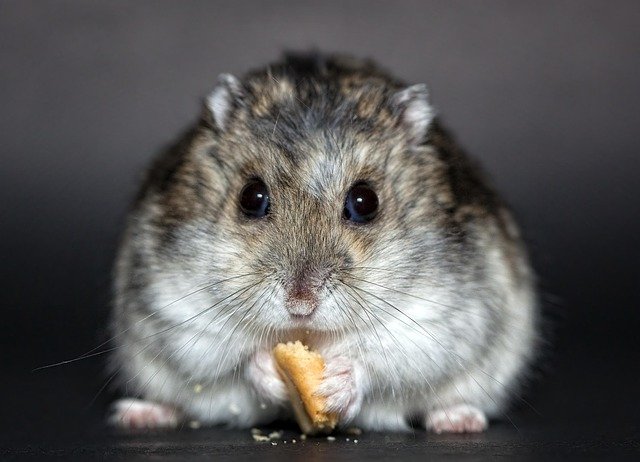Small Mammal Nutrition: Dietary Needs Across Different Species
Understanding the nutritional requirements of small mammals is crucial for their health and longevity. From exotic pocket pets to nocturnal species, each animal has unique dietary needs that must be carefully considered. Proper nutrition affects everything from behavior and breeding success to overall wellness and lifespan. Whether you're caring for rabbits, guinea pigs, hamsters, or more exotic species, providing species-appropriate nutrition requires knowledge of their natural habitat, feeding patterns, and metabolic requirements.

Understanding Exotic Small Mammal Species Requirements
Exotic small mammals encompass a diverse range of species, each with specialized nutritional needs evolved from their natural habitat. Unlike domestic cats and dogs, these animals often require specific ratios of fiber, protein, and carbohydrates that mirror their wild diet. Species such as chinchillas need high-fiber, low-fat diets, while sugar gliders require more protein and natural sugars. Understanding these fundamental differences prevents common nutritional deficiencies and supports optimal health outcomes.
Habitat Influences on Dietary Behavior
The natural habitat of small mammals directly influences their nutritional requirements and feeding behavior. Desert-dwelling species like degus have adapted to low-sugar diets and require careful monitoring of carbohydrate intake. Forest species often need varied diets rich in different plant materials, seeds, and occasional insects. Nocturnal animals may have different metabolic rates and feeding schedules compared to diurnal species, affecting how often and what quantities they should be fed throughout the day.
Temperature and Humidity Effects on Nutrition
Environmental factors like temperature and humidity significantly impact small mammal metabolism and nutritional needs. Higher temperatures may increase water requirements and affect appetite, while cooler conditions might necessitate higher caloric intake. Humidity levels influence food storage and freshness, particularly important for species requiring fresh vegetables and fruits. Proper environmental control ensures that nutritional supplements remain effective and that animals maintain healthy eating patterns year-round.
Seasonal Dietary Adjustments for Wildlife Species
Many small mammals experience seasonal changes in their nutritional requirements, even in captivity. During breeding seasons, females often need increased protein and calcium to support reproduction and nursing. Some species naturally reduce food intake during certain months, mimicking hibernation patterns. Understanding these seasonal behavior patterns helps caregivers adjust feeding schedules and supplement ratios appropriately, supporting natural biological rhythms while maintaining optimal health.
Veterinary Nutrition Guidelines and Husbandry Practices
Proper veterinary guidance is essential for developing appropriate nutrition plans for different species. Regular health monitoring helps identify nutritional deficiencies before they become serious problems. Professional husbandry practices include proper food storage, feeding schedule consistency, and understanding species-specific dietary restrictions. Many exotic veterinarians recommend specific commercial diets supplemented with fresh foods, creating balanced nutrition programs tailored to individual animals and species requirements.
| Species Type | Commercial Diet Cost | Monthly Food Budget | Specialized Supplements |
|---|---|---|---|
| Rabbits | $15-25 per bag | $20-35 | Vitamin C, Timothy hay |
| Guinea Pigs | $12-20 per bag | $25-40 | Vitamin C, fresh vegetables |
| Chinchillas | $18-30 per bag | $15-25 | Dust baths, limited treats |
| Sugar Gliders | $25-40 per bag | $30-50 | Protein supplements, fresh fruits |
| Degus | $20-35 per bag | $20-30 | Low-sugar diet, hay |
Prices, rates, or cost estimates mentioned in this article are based on the latest available information but may change over time. Independent research is advised before making financial decisions.
Communication and Rehabilitation Through Proper Nutrition
Nutrition plays a vital role in animal communication and successful rehabilitation efforts. Well-nourished animals display more natural behaviors, better social interactions, and improved responsiveness to training or handling. In rehabilitation settings, species-appropriate nutrition supports recovery from illness or injury while maintaining the animal’s ability to eventually return to natural behaviors. Proper filtration of water sources and clean feeding environments prevent contamination that could compromise health and recovery progress.
Maintaining optimal nutrition for small mammals requires understanding each species’ unique requirements, environmental needs, and natural behaviors. Success depends on combining high-quality commercial diets with appropriate supplements, fresh foods, and consistent veterinary care. By respecting the natural dietary patterns and habitat requirements of these diverse species, caregivers can ensure their small mammals thrive in captivity while maintaining their natural instincts and behaviors.




